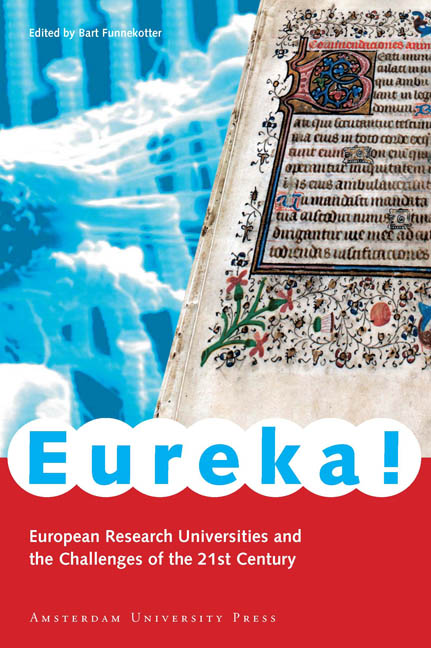Book contents
- Frontmatter
- Contents
- Foreword
- Introduction: Challenges of the Twenty-first Century
- Cambridge: Cambridge University
- Edinburgh: University of Edinburg
- Geneva: Université de Genève
- Heidelberg: Ruprecht-Karls-Universität
- Helsinki: Helsingin Yliopisto
- Leiden: Universiteit Leiden
- Louvain: Katholieke Universiteit Leuven
- Milan: Università Degli Studi Di Milano
- Munich: Ludwig-Maximilians-Universität
- Oxford: Oxford University
- Stockholm: Karolinska Institutet
- Strasbourg: Université Louis Pasteur
Cambridge: Cambridge University
Published online by Cambridge University Press: 23 January 2021
- Frontmatter
- Contents
- Foreword
- Introduction: Challenges of the Twenty-first Century
- Cambridge: Cambridge University
- Edinburgh: University of Edinburg
- Geneva: Université de Genève
- Heidelberg: Ruprecht-Karls-Universität
- Helsinki: Helsingin Yliopisto
- Leiden: Universiteit Leiden
- Louvain: Katholieke Universiteit Leuven
- Milan: Università Degli Studi Di Milano
- Munich: Ludwig-Maximilians-Universität
- Oxford: Oxford University
- Stockholm: Karolinska Institutet
- Strasbourg: Université Louis Pasteur
Summary
Cambridge University in facts and figures:
Founded in 1209
11,979 undergraduate students and 5,499 graduate students
8740 staff
Budget € 924 million
No other university in the world has been awarded as many Nobel Prizes as Cambridge University. Over the years no fewer than eighty scientists from the university have been presented with the ultimate recognition for their work. Trinity College alone has received the prize 31 times since the first one was awarded in 1901 – that is more than many an entire nation has managed to collect altogether.
Throughout the entire nineteenth century and the beginning of the twentieth, the natural sciences were especially well represented at the university on the Cam. This is the place where the first electrons were glimpsed, the first atomic nuclei split, the first digital computer developed and the double helix structure of DNA discovered. Cambridge's pantheon of scientists includes greats such as Charles Darwin, Lord Kelvin, James Clark Maxwell, Lord Raleigh, James Watson, Francis Crick and Stephen Hawking.
According to popular British cliché, people hoping for careers in politics and government go to Oxford, while those with scientific aspirations belong in Cambridge. Like many clichés, this one contains a kernel of truth. For instance, 25 prime ministers have been Oxford alumni, while Cambridge has produced a paltry fifteen; on the other hand Cambridge scientists have won eighty Nobel Prizes while Oxford has gathered only 47. In international surveys as well, Cambridge always finishes slightly above Oxford.
Cambridge University is proud of its standing. Compared to Oxford, it strikes the visitor as being slightly more serious, perhaps even boring. The city itself is smaller, the college buildings less impressive, there are fewer tourists to be found and the pubs are rather more hidden. In general, the atmosphere in the city seems to breathe: ‘We’re hard at work.’
In spite of Cambridge's leading position in the hard sciences, it has been slow to seek income from its research. However, the ‘Cambridge Phenomenon’ has now taken over. Led by Trinity College and St John's College, a Science Park has sprung up outside the city and is continuing to grow. By the time its sixty hectares are completely built up, it will be one of the world's largest research centres.
- Type
- Chapter
- Information
- Eureka!European Research Universities and the Challenges of the 21st Century, pp. 15 - 25Publisher: Amsterdam University PressPrint publication year: 2005

